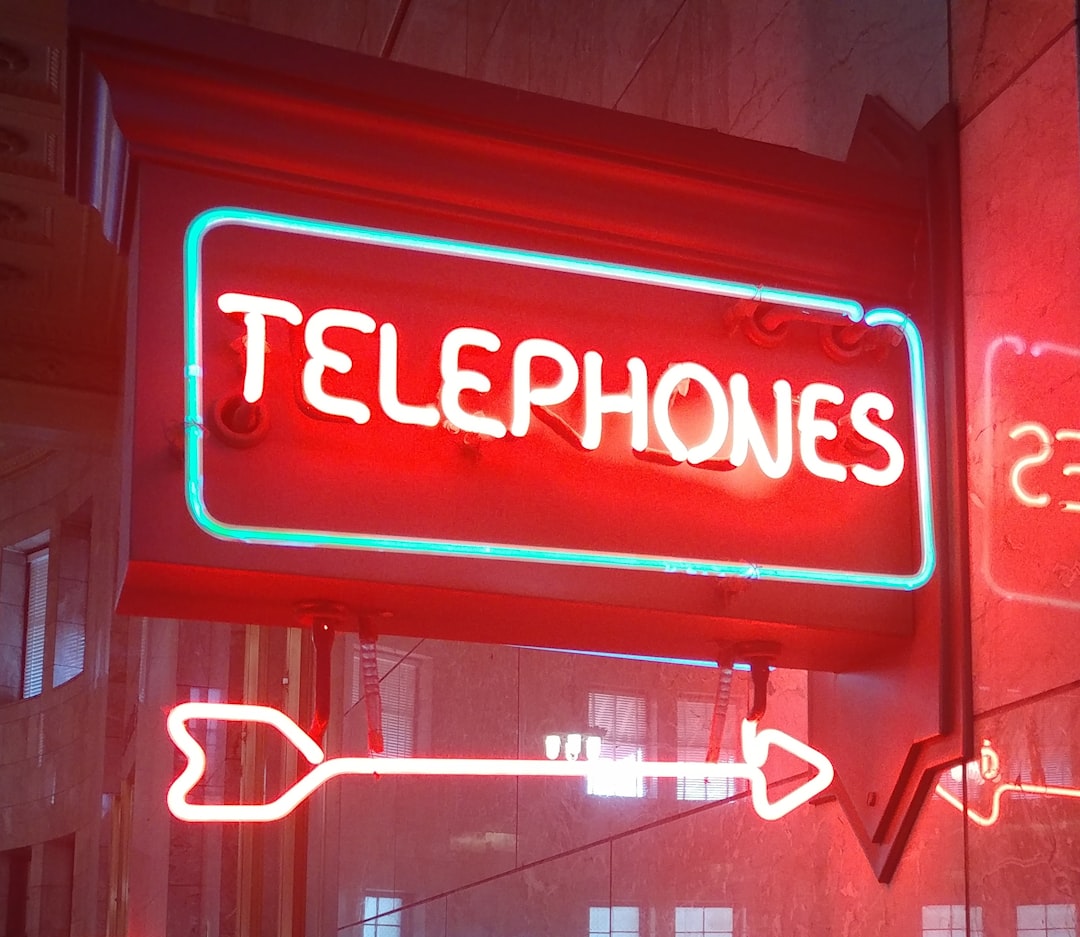In Montana, robust legal frameworks protect residents from unwanted autodialed calls and text messages through strict robocall laws. If facing an influx of unsolicited texts or robocalls, consulting a stop unwanted texts lawyer in Montana is crucial. These experts guide individuals on navigating laws and taking action, such as filing complaints or pursuing legal recourse, to protect communication preferences and advocate for a quieter environment. Businesses must obtain explicit permission or fall under specific exceptions when using automated dialing systems, avoiding unauthorized autodialing and potential legal complications. Legal professionals specializing in robocall cases can help individuals block calls, hold perpetrators accountable, and pursue legal action if necessary.
“In Montana, protecting residents from unsolicited autodialed calls and texts is a growing concern. With the rise of robocalls and unwanted marketing messages, understanding your rights and legal options is crucial. This comprehensive guide delves into Montana’s strict robocall laws, outlining when autodialing is permissible and your rights as a resident.
Learn effective strategies to stop robocalls, discover legal practices for businesses, and explore the future of consumer protection. For tailored legal assistance, connect with a robust network of lawyer experts specializing in robocall law firms across Montana to reclaim your peace of mind.”
- Understanding Montana's Robocall and Text Laws
- When is Autodialing Legal in Montana?
- Your Rights as a Montana Resident Against Unwanted Texts
- Strategies to Stop Robocalls and Unwanted Marketing Messages
- Hiring a Lawyer for Help with Robocalls in Montana
- Common Myths About Autodialers Debunked
- Effective Solutions for Businesses: Legal Autodialing Practices
- The Future of Consumer Protection Against Robocalls
Understanding Montana's Robocall and Text Laws
In Montana, the fight against unwanted autodialed calls and text messages is protected by robust legal frameworks. The state’s robocall law strictly regulates automated communication methods, primarily to safeguard consumers from intrusive marketing tactics. These laws are in place to ensure that individuals have control over their communication preferences, especially when it comes to receiving unsolicited messages.
If you reside in Montana and are facing an influx of unwanted texts or robocalls, knowing your rights is essential. A stop unwanted texts lawyer in Montana can provide guidance on how to navigate these laws and take appropriate action. Whether you need to file a complaint or seek legal recourse, experts in this field can help you understand your options, ensuring you are not just another victim of such practices but an advocate for a quieter, more respectful communication environment.
When is Autodialing Legal in Montana?
In Montana, autodialing is generally prohibited without explicit consent from the recipient, making it crucial for businesses and organizations to respect consumer privacy. The state’s robocall laws are designed to stop unwanted texts and calls, ensuring citizens are not bombarded with unsolicited messages. According to these regulations, a business can only use automated dialing systems if they have prior express permission from the phone number’s owner, or if they meet certain exceptions outlined in the law.
For instance, autodialing may be legal for specific purposes such as health-related services, emergency notifications, or messages from non-profit organizations. However, even in these cases, clear opt-out mechanisms must be provided to ensure recipients can choose to no longer receive such calls. Engaging a lawyer specializing in robocall laws, like a stop unwanted texts attorney Montana, can help businesses navigate these regulations and avoid potential legal issues associated with unauthorized autodialing.
Your Rights as a Montana Resident Against Unwanted Texts
As a resident of Montana, you have certain rights when it comes to unwanted text messages, commonly known as robocalls. These automated phone calls, often promoting products or services, can be intrusive and frustrating. However, state laws offer protections to prevent excessive or unauthorized autodialing. According to the Telephone Consumer Protection Act (TCPA), individuals have the right to refuse receipt of such messages by opting out.
If you’re facing a deluge of unwanted texts from telemarketers or automated systems without your consent, it’s advisable to consult a lawyer specializing in robocall cases in Montana. A legal expert can guide you on blocking these calls and help hold perpetrators accountable. They can also assist in pursuing legal action if necessary, ensuring that your rights as a Montana resident are upheld.
Strategies to Stop Robocalls and Unwanted Marketing Messages
Unwanted autodialed texts and robocalls can be a persistent nuisance, but there are several strategies Montanans can employ to protect themselves. One effective method is to register on the National Do Not Call Registry. This federal list restricts telemarketers from contacting numbers listed on it, offering some relief from unsolicited calls. Additionally, many phone companies provide call-blocking features or apps that filter out known robocallers. Utilizing these tools can significantly reduce the volume of unwanted texts and calls.
Seeking legal counsel from a robocall law firm or lawyer in Montana is another proactive step. These professionals specialize in consumer protection laws and can help navigate the complexities of stopping unwanted marketing messages. They may advise on specific actions, such as sending cease-and-desist letters to call centers or taking legal action against persistent violators. With their expertise, individuals can assert their rights and find effective solutions to eliminate robocalls and protect their privacy.
Hiring a Lawyer for Help with Robocalls in Montana
If you’re in Montana and are tired of receiving unwanted autodialed calls or texts, considering hiring a lawyer could be a wise step. Stopping robocalls can be complex due to various legal nuances and the ever-changing landscape of telecommunications law. A qualified attorney specializing in this area can offer invaluable guidance tailored to your situation.
In Montana, there are strict regulations in place to protect consumers from intrusive marketing practices, including robocalls. A lawyer with expertise in this field will be well-versed in these laws and can help you understand your rights. They can take proactive measures to stop the autodialer calls, such as sending cease-and-desist letters, filing official complaints, or even pursuing legal action if necessary. With their assistance, you can reclaim your peace of mind and enjoy a quieter, less disruptive daily communication experience.
Common Myths About Autodialers Debunked
Many people believe that autodialers are a necessary evil in modern marketing, but it’s important to understand the impact they have on consumers and their legal rights. Common myths persist that these automated calling systems are unavoidable or even legal when used without express permission. In Montana, as in many other states, this is simply not true. A lawyer specializing in robocalls can help you navigate the complexities of the law and stop unwanted texts once and for all.
One pervasive myth is that autodialers are only used by legitimate businesses. However, scam artists often employ these tactics to target unsuspecting individuals. Another common misconception is that there’s little consumers can do about robocalls. In reality, a lawyer for robocall in Montana can guide you through the process of taking legal action against these intrusions. Under the Telephone Consumer Protection Act (TCPA), businesses are restricted from using automated dialing systems to contact individuals without prior consent. Stopping unwanted texts is not only possible but also legally enforceable.
Effective Solutions for Businesses: Legal Autodialing Practices
Many businesses in Montana rely on autodialers to reach customers and promote their services. However, the unauthorized use of this technology can lead to a flood of unwanted texts and robocalls, causing frustration among recipients. To challenge and prevent such practices, both businesses and individuals have legal options available. Engaging a lawyer specializing in stop unwanted texts or robocall cases is an effective step. These legal experts can guide companies on adhering to Montana’s regulations, ensuring autodialer use respects privacy rights without express consent.
A robust strategy involves implementing opt-out mechanisms in marketing campaigns and obtaining explicit permission from recipients before initiating any automated calls or texts. Robocall lawyers in Montana can assist in crafting compliance plans, drafting informed consent agreements, and even pursuing legal action against violators on behalf of affected clients. By adopting these legal autodialing practices, businesses can maintain customer trust and avoid potential penalties while effectively communicating with their target audience.
The Future of Consumer Protection Against Robocalls
In the ever-evolving digital landscape, consumer protection against unwanted and fraudulent communication, particularly robocalls and automated texts, is a growing concern. The future of defending consumers lies in enhanced legal frameworks and robust technology. As Montana residents navigate an increasing number of these intrusive calls, seeking legal recourse has become more vital. A lawyer specializing in this area can guide individuals through the complexities of robocall regulations and help them understand their rights.
With advancements in technology, the methods to stop unwanted texts and robocalls are also transforming. Legal professionals in Montana are staying ahead of the curve by employing innovative strategies. They collaborate with telecommunications companies, government agencies, and tech developers to create effective solutions. By staying informed about legislative changes related to robocall laws and representing affected consumers, these attorneys play a crucial role in shaping a safer digital environment.






